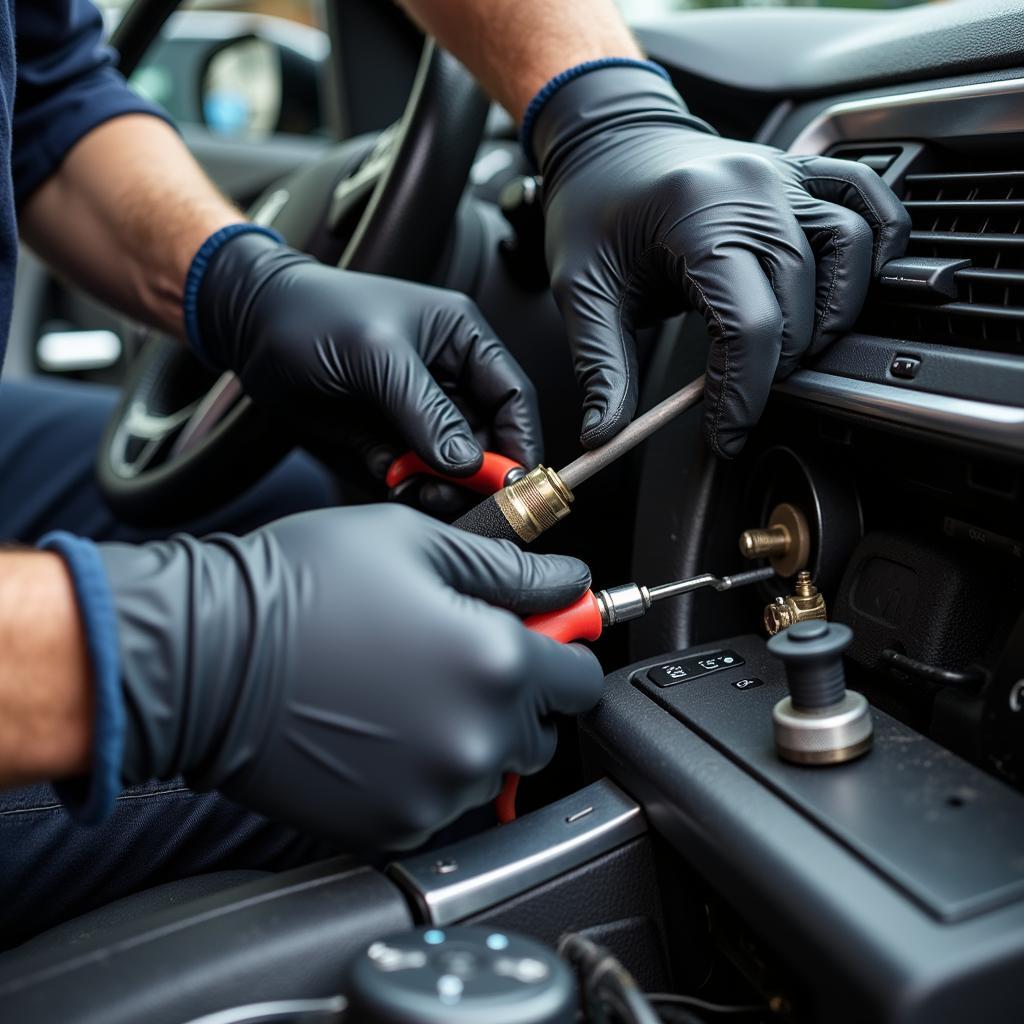Car Evap Problems can be a real headache, triggering that dreaded check engine light and potentially impacting your vehicle’s performance. This guide dives deep into the common causes of evaporative emission control system (EVAP) issues, helping you understand, diagnose, and even fix some of these problems yourself. car evap system problems
Understanding Your Car’s EVAP System
The EVAP system is designed to prevent harmful fuel vapors from escaping into the atmosphere. It captures these vapors and stores them in a charcoal canister, later purging them into the engine for combustion. A complex network of components, including the fuel tank, vent control valve, purge valve, and various hoses and sensors, work together to ensure this process runs smoothly.
Common Car Evap Problems
Several issues can disrupt the EVAP system, often leading to that annoying check engine light. Loose or damaged gas caps are a frequent culprit, as they break the airtight seal necessary for proper vapor capture. Other common problems include faulty vent control valves, cracked or disconnected hoses, and a malfunctioning purge valve. Occasionally, the charcoal canister itself can become saturated and require replacement.
Diagnosing Car Evap Problems
Diagnosing car evap problems can range from simple visual inspections to more complex diagnostic tests. Start by checking the gas cap for any visible damage or looseness. evap problems car] Next, inspect the hoses and connections for cracks, leaks, or disconnections. If these checks don’t reveal the issue, a professional diagnostic scan tool can pinpoint the specific fault codes stored in your car’s computer, providing a more precise diagnosis.
DIY Fixes for Car Evap Problems
Some car evap problems, like a loose or damaged gas cap, are easy DIY fixes. Simply tightening or replacing the gas cap can often resolve the issue. Similarly, if you find a cracked or disconnected hose, you may be able to replace it yourself with some basic tools and a replacement hose. However, more complex issues, such as faulty valves or a saturated canister, typically require professional attention. why do cars have evap problems]
When to Seek Professional Help
While some evap problems lend themselves to DIY solutions, others necessitate the expertise of a qualified mechanic. If you’re unsure about the cause of the problem or uncomfortable working on your car’s fuel system, it’s always best to seek professional help. A mechanic can accurately diagnose the issue, perform the necessary repairs, and ensure your EVAP system is functioning correctly.
Preventing Future Car Evap Problems
Regular maintenance is key to preventing future car evap problems. Ensure your gas cap is always tightly sealed after refueling. problems if car is not started for a long time] Periodic inspections of the hoses and connections can also help identify potential problems before they escalate. Addressing these small issues proactively can save you time, money, and frustration down the road. why do i have problem refueling my car]
“Regular checks of the EVAP system, especially hoses and connections, are often overlooked but vital for preventing bigger, more costly repairs,” advises John Davis, a seasoned automotive engineer with over 20 years of experience.
Conclusion
Car evap problems can be frustrating, but understanding the system and common issues can empower you to tackle them effectively. From simple DIY fixes to professional repairs, this guide provides the information you need to keep your EVAP system in top shape and prevent those pesky check engine lights. For any further assistance or inquiries, don’t hesitate to connect with us at AutoTipPro. Call us at +1 (641) 206-8880 or visit our office at 500 N St Mary’s St, San Antonio, TX 78205, United States. We’re here to help!
“Addressing minor EVAP issues promptly prevents bigger headaches and expensive repairs later on,” adds Sarah Miller, a certified mechanic and automotive instructor. Don’t let car evap problems get the best of you – be proactive and stay informed!





Leave a Reply